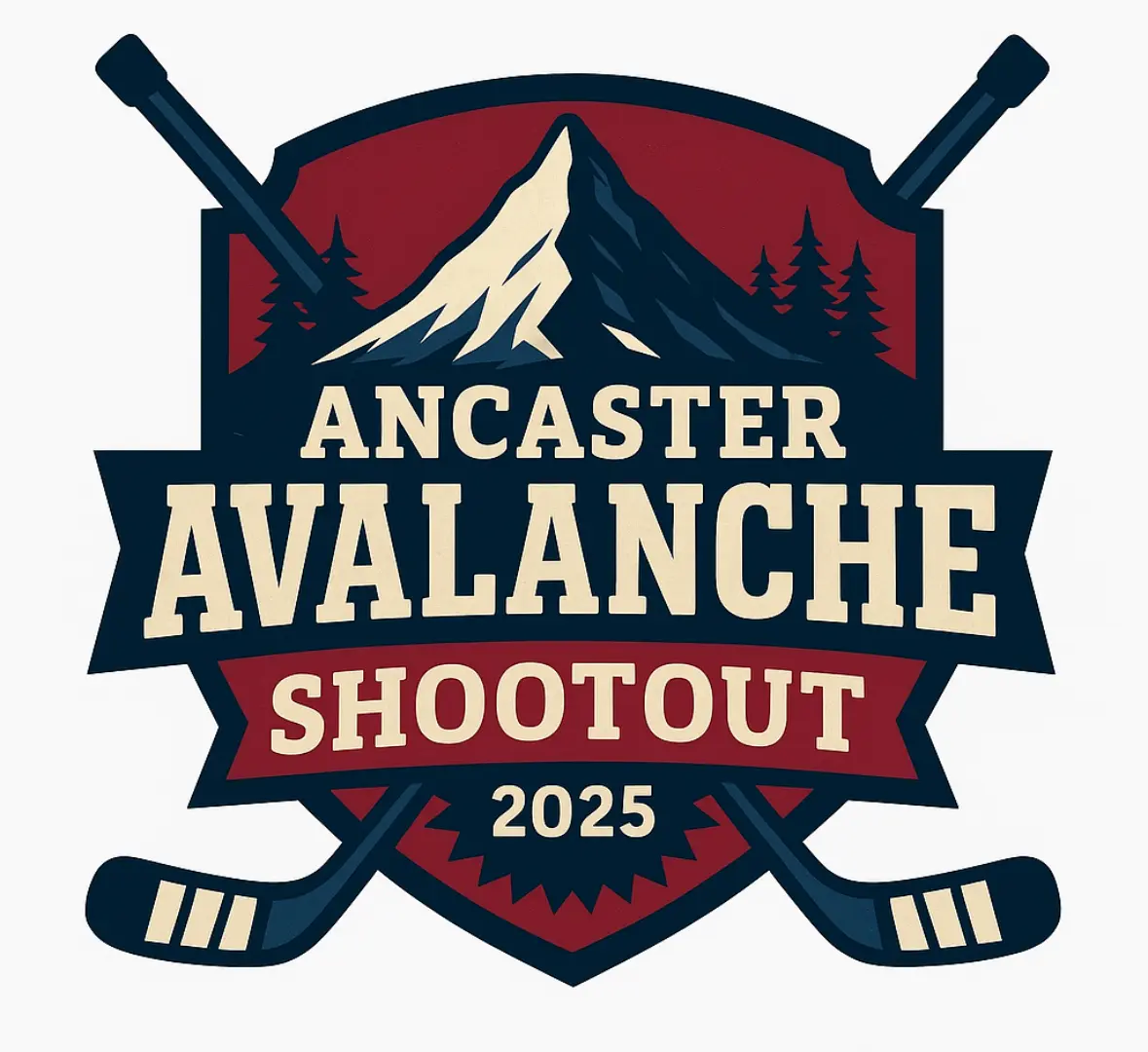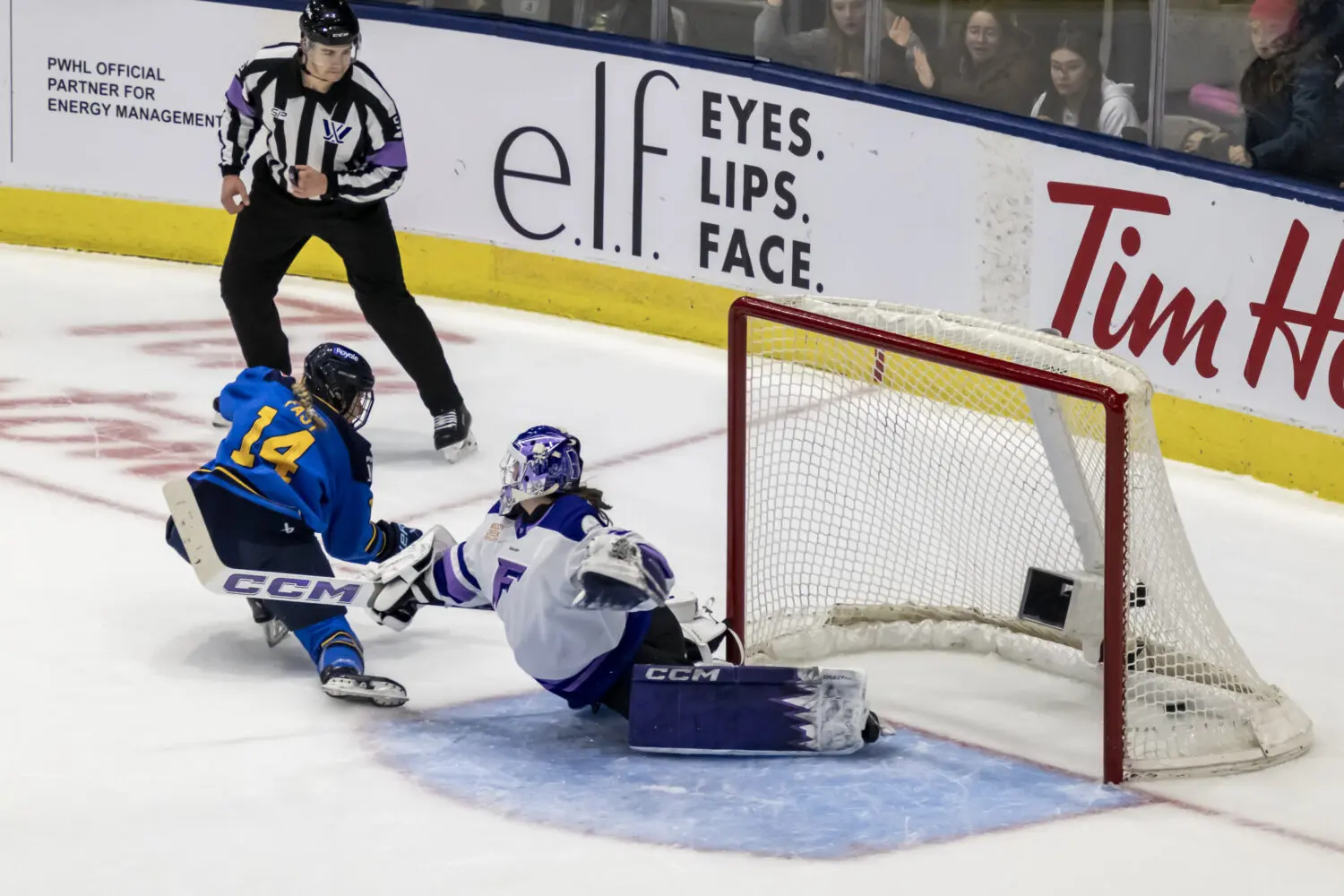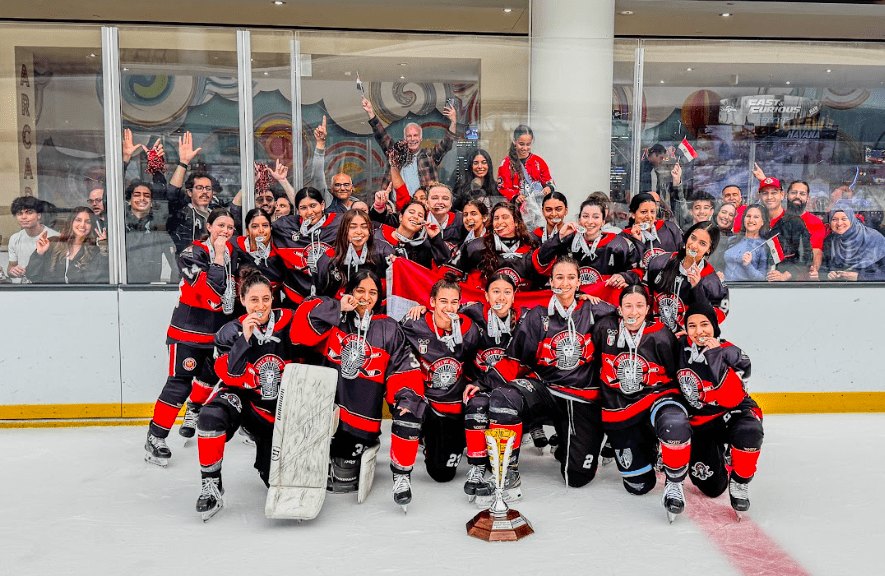*Kyla originally posted this article on www.Oilersnation.com
Darkness. My eyes were wide open, but all I could see was black. My body hit the ice and as my vision returned I knew that the concussion and everything that comes along with it had, too. That was the brightest the darkness would be for months to come.

People talk about concussions all the time. Hockey fans hear about Amanda Kessel’s long battle with a concussion, Sidney Crosby’s struggles, Eric Lindros being forced into retirement by concussions and the introduction of “concussion spotters” into the NHL. What hockey fans and, more importantly, hockey players at the amateur level hear less about are concussions outside of professional hockey. We hear about professional players taking weeks, sometimes even months and years, off from everything to nurse their brains back to health, but what about the rec league players who aren’t able to take time off work or from their lives to give their brains the break they need to heal? Our brains are no different than those of professional athletes, just as our bones are made from the same fragile elements as theirs are. Our brain injuries are just as serious as theirs, but we don’t talk about them nearly as much, we don’t recognize them as real, and we don’t acknowledge them as being as damaging.
When I received my fourth concussion (the third from hockey), I spent one day away from work because I couldn’t physically get out of bed. The day after, I was back at the office. When I received another concussion at hockey three months later, I took one day off work again because I had spent the previous night in the hospital. The day after that, I was back at work, staring at a screen for multiple hours and using the bathroom frequently to throw up from the overload on my brain. I didn’t think I had a choice. I didn’t think my brain injury was the same brain injury that causes professional hockey players to sit in the darkness for weeks upon weeks. How wrong I was.
I am the first to admit that I contribute to the reason why concussions aren’t taken as seriously at the amateur level. As soon as my concussion subsided enough to allow me to play a full game of hockey (or, rather, stand in my crease and will my body to function long enough to make it through the game), I was back on the ice. Of course bystanders were going to think that my concussion had healed quickly, or wasn’t that bad to begin with. But the crippling headaches that gripped my brain to the point of vomiting, the pupils behind my mask that followed the play in a delayed fashion, the exhaustion that caused my legs behind the pads to shake, the blank stares past my teammates, and the debilitating migraine upon making it home that often resulted in me waking up on the bathroom floor with no recollection of getting there in the first place was as good as any indication that the concussion wasn’t healed. Why would anyone believe the brain injury was real if I was doing everything in my power for it not to be real?
Every morning I’d wake up after a night of vomiting, ice packs and T3s. I’d make my way into work, suffer through the lights, the noise, the headaches, the exhaustion until it was time to return to the darkness of my bedroom. If I had a game that night, I’d play and deal with the consequences once I got back. I needed hockey. I needed one thing to still feel normal when my brain was making every part of my being feel everything but.
I had no ambition. I had no hopes, no dreams. I found myself unable to love my family. I couldn’t feel. Nothing makes a person wonder if they’ll ever be normal again like talking to your loved ones and feeling absolutely nothing towards them. Annoyance, maybe, because they were still loving you when you couldn’t love back, or because they were telling you it would be okay when everything else was telling you the opposite.
Yes, concussions give you physical ailments like headaches and severe exhaustion, but they also take things from you. They take your ability to feel like a human being. They take your desire to live, to make sense of the unrelenting depression and anxiety that take over your mind. They take your friends, your family, your teammates and they tell you that you’re completely alone. You have no choice but to believe it when you’re sitting in the dark alone for hours on end so it will keep its physical horrors at bay.
The worst part of it all was that I couldn’t explain any of it to anyone, let alone myself. I kept playing hockey because I didn’t see any other options. I thought that as soon as I stopped playing the very game that was making me still feel alive, I’d stop being alive. What an eery thing: to be taking the risk of killing yourself in a sport you love so that you won’t kill yourself without it.
I remember telling a teammate and friend one day that I kept playing because I believed it was all in my head. That nothing was as bad as it seemed and I was making it all up. It couldn’t be real. He stared at me and told me how obvious it was that I wasn’t the same. How clear it was that I was fighting a battle I couldn’t win until I accepted the reality of the situation and helped myself.
Dr. Randy Gregg

It was shortly after this that I saw Dr. Randy Gregg at the Edmonton Sports Institute. He gave me the no-nonsense explanation of the risks I was taking by continuing to play the game. He was the swift kick in the ass that I needed to save myself from what I was doing to my body. This is why I asked Dr. Gregg to answer some questions regarding concussions for this article. Fortunately, he was more than willing to take the time to answer these questions and hopefully help others who aren’t familiar with concussions, or who would rather ignore it:
1) As someone who has seen the effects of concussions at the professional level and the amateur level, what would you say is the biggest difference in how they’re dealt with, or lack thereof?
Dr. Gregg: Hopefully concussion management is very similar today in the professional and amateur levels. The awareness of concussion and its long-term effects is becoming more apparent and therefore the quality and consistency of concussion treatment approaches tend to be equal regardless of an athlete’s background. In the past, the approach to concussion management seemed to be quite different at the professional level, as there was a significant monetary influence in making a decision to restrict an athlete’s participation in the prime of their careers. I believe that is why we will continue to see a number of former professional athletes with severe cognitive deficits from concussions sustained many years ago that were not addressed appropriately.
2) What’s the biggest misconception about concussions when it comes to sport at any level?
Dr. Gregg: Hopefully in 2017 every coach, parent and athlete will have a basic understanding of concussions and the possible long-term ramifications associated with them. I believe that the biggest misconception regarding concussions at this time is the fact that a traumatic injury with symptoms that last only a few minutes is not a concussion. Medical personnel must continue to be vigilant in educating the general athletic population that any change in mental function is associated with a concussion, regardless of the length of time that the athlete may have symptoms.
3) What advice would you give to amateur athletes who may not be taking concussions as seriously as they should be? For example, a beer league hockey player “toughing it out” because he/she doesn’t understand the consequences, or doesn’t want to miss any time.
Dr. Gregg: Many years ago athletes in contact sports were judged by how tough they are, how they could play through injuries and need to perform for their team. In 2017, hopefully coaches, fans and parents will judge an athlete not by how tough they are but how smart they are. Intuitive athletes will quickly understand that performing at less than their optimum level will not help their team be successful and may in fact put them at significant long-term risk.
4) How can we better educate everyone involved in the game (parents, refs, coaches, athletes) to ensure that athletes are not only enjoying the sport of hockey, but also making sure they’re playing it safely, without jeopardizing their long-term health in the process?
Dr. Gregg: It sounds quite simple but truly the only level of hockey where winning is the only goal is at the NHL level. In the NHL, elite players are paid not to play well but simply to win. In lower levels, intuitive coaches and engaging parents have the opportunity to set much loftier goals for their young athletes, including enhancement of self-esteem, experiencing teambuilding, staying physically fit, understanding the importance of commitment and most importantly having fun through sport. If we set those goals for our young athletes in any sport, we can achieve a 100% success rate!
5) As a former player and now a medical professional in the field, have you seen a significant difference in how concussions are viewed within the game as opposed to outside of it?
Dr. Gregg: Fortunately the business of professional hockey has changed a great deal since I had the opportunity to play. It appears that the long-term welfare of each athlete is deemed to be more important than simply having him play in the next game. Whether that decision is made to protect a business asset or simply help to ensure a high level of team performance in the future, it is nice to see that the approach to concussion management is becoming more consistent at both the professional and amateur levels.
Brightening the Darkness
Concussions aren’t a joke. Multiple concussions aren’t the same injury repeated: each one is a new and improved hell. I am now on my sixth concussion and I feel the effects of it every single day. I don’t know if I will be able to play hockey again, whether it be due to the risk of another blow to the head or because my body physically won’t let me, but I do know that at some point you have to take a stride back and ask yourself if the game is taking more from you than it’s giving you.
If you have suffered a concussion, or many, you’re not alone. You’re not making the symptoms up in your head, and you’re surely not “milking” the injury if you take time off from your life to heal yourself. Without your brain, you ultimately have nothing. Whether you have a concussion, or you know someone who does: take them seriously. They’re just as real as those NHL players you see wobbling off the ice with nothing behind their eyes. You are not exempt just because you aren’t getting paid to play the game. All brains are fragile, and all brains deserve to be treated as such.
We may not have access to the doctors, research and treatment that professional hockey players do, but we deserve the same healing process as them. Though we call them concussions, the reality is that ‘concussion’ is a less terrifying word than ‘brain injury’, but that’s exactly what they are. A brain injury. If your loved one was the victim of a brain injury, would you send them back into the battle field? Probably not. Treat yourself as your loved ones and believe in the seriousness of your injury, even if others don’t. You’re not invincible because you’re a hockey player, and you’re certainly not invincible because you’ve suffered an invisible injury.
I wrote this article because I’m now aware of how many people are struggling or have struggled with brain injuries. When I was struggling the most, hearing someone identify with me, or knowing that I wasn’t crazy because other people experienced it too helped me through. I hope that this speaks to someone who doesn’t believe it’s real, or has admitted to its validity and feels lost. You’re not alone. It is real. Acknowledge it, get help, and take the time to heal. You deserve that—your brain deserves that.
[adrotate group=”1″]
Related Articles
Categories
Recent Posts
[adrotate group=”2″]




